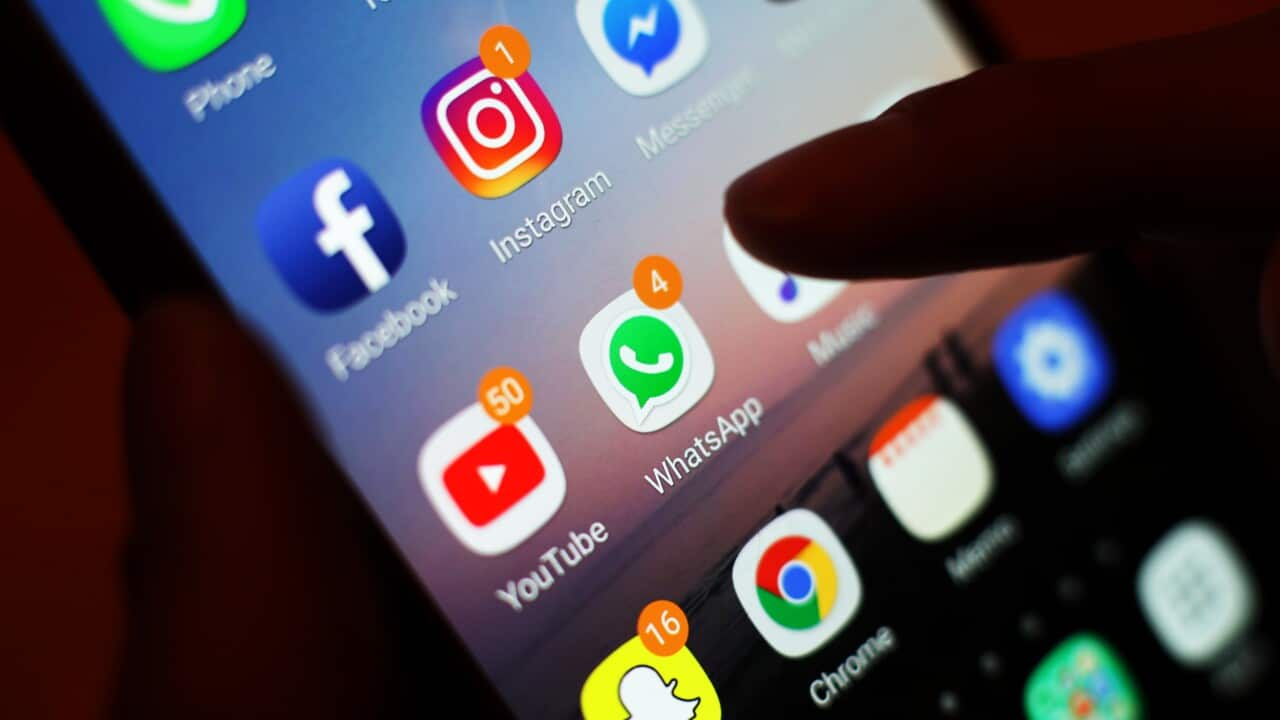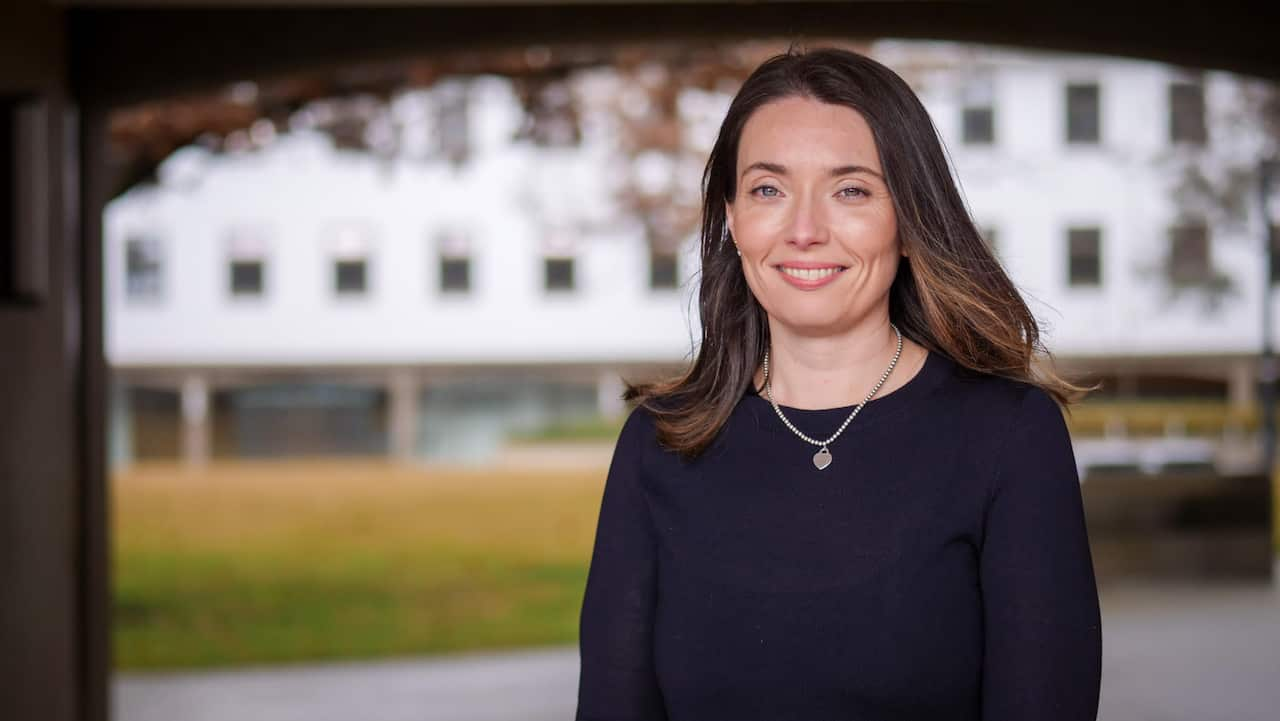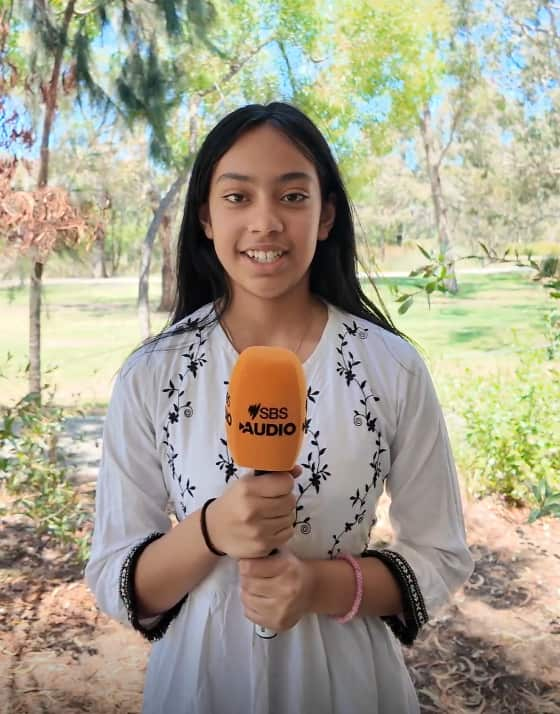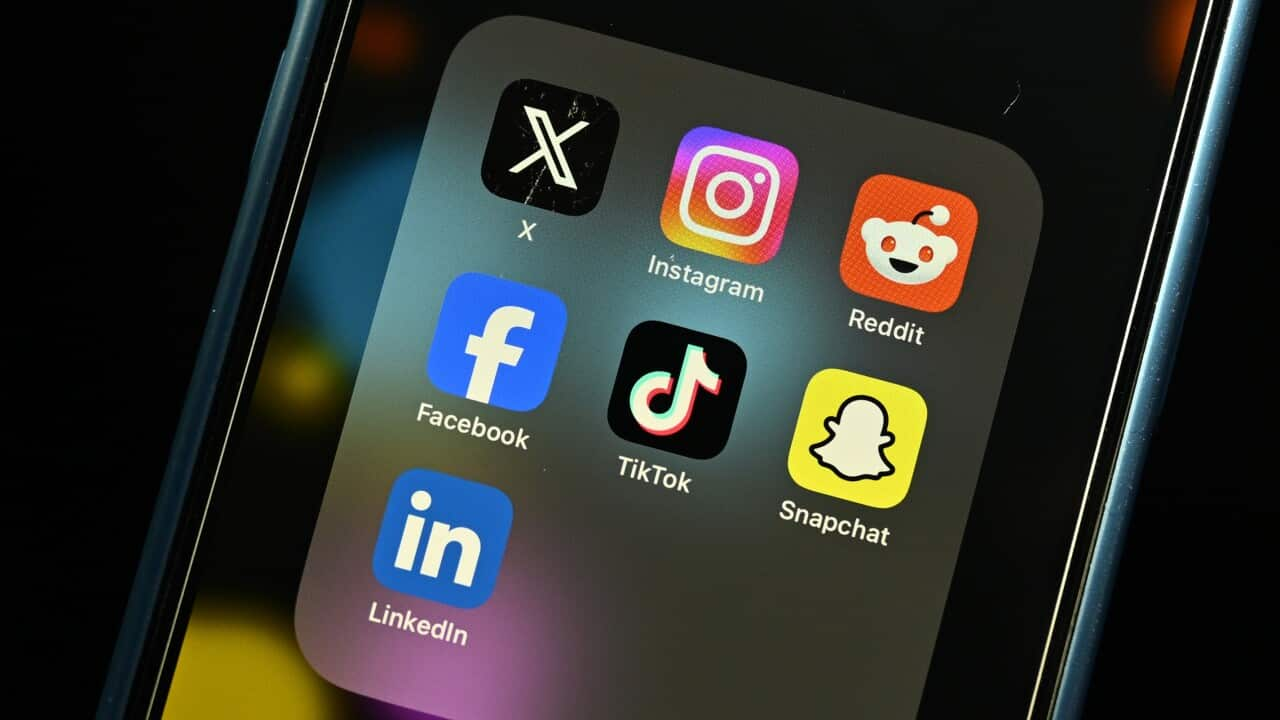

‘Connected to home’: How 2025 social media changes impact Australian migrant communities
With Facebook owner Meta announcing the removal of third-party fact-checking services and a world-first social media ban for children set to come into effect, what does the social media landscape look like for Australia’s migrant communities this year?
Published 14 January 2025 12:08pm
By Abhas Parajuli
Source: SBS / Dinita Rishal / Sapana Phuyal / Sameer Ghimire / Lihua Luo (SBS Chinese)
Image: At the end of 2025, children under 16 will no longer be able to hold accounts on social media platforms such as Facebook, X, Instagram, TikTok, and Snapchat, following the passing of world-first legislation by the Australian government in November 2024. (Yui Mok/PA)
Key Points
- Meta’s removal of fact-checking services has stoked discussion on social media’s role in disseminating news and current affairs content.
- Parents, children and educators debate the merits of Australia’s under-16 social media ban.
- Prime Minister Albanese said the law protects children, but a media expert calls it a 'knee-jerk policy decision'.
As the father of an 11-year-old, Rahul Pokharel takes a cautious approach to his kid’s internet access.
While his son has social media accounts, Pokharel said he and his wife actively monitor his online activities.
“We keep an eye on his social media interactions, like if he’s been in touch with a stranger or not,” Pokharel, who heads a language school in Melbourne, said.

Rahul Pokharel believes social media helps kids like his son to connect with family overseas. Credit: SBS Nepali / Sapana Phuyal (inset) and Pexel / Kampas Production
“(My son) uses it to remain in touch with family in Nepal and overseas ... so I feel we could have done without the ban,” he said.
Because of social media, he is in regular touch with his grandparents and is interested in connecting with cousins overseas. Maybe we should not take that away?Rahul Pokharel
In late November last year, when the Federal Parliament voted to legislate the ban for those under 16.
The ban, which will come into effect sometime later this year, will change how popular social media products like Facebook, TikTok and others are consumed by Australian children and young people.
Prime Minister Anthony Albanese said the law aims to reduce the harm done to children by such platforms.

Faith Gordon, associate professor at the Australian National University College of Law. Credit: Tom Fearon, ANU
She pointed out that young Australians impacted by the ban could bypass the laws by utilising virtual private network (VPN) connections.
Some also say the change risks further isolating children from migrant communities who may already be struggling for a sense of belonging.
Ramesh Khadka, a parent, said he has witnessed children of migrant families isolated and quite withdrawn from their families.
“A lot of families I know own a two-story house. The kid(s) are often in their rooms upstairs, on their (phones and) laptops on social media for hours, with parents having no knowledge of what their children are up to,” he said.
While most children might be using social media as a tool of connection, Khadka urged parents to play a bigger role in monitoring and guiding them.

Shreeyam Sapkota (left), Arya Bhattarai (centre), and Rishan Shrestha (right) are among the “lucky” ones who will escape the social media ban when it comes into effect later this year. Credit: SBS Nepali / Sameer Ghimire
She told SBS Nepali that being on social media allows her and her peers to connect with each other and friends.
But Luiz Ghimire won’t be so “lucky”.

Luiz Ghimire thinks the ban is unfair. Credit: SBS Nepali / Sapana Phuyal
“Our parents are not always home, so if we long the need to connect to our grandparents, the ban will unfairly disadvantage us,” she said.
‘A social responsibility’
Social media giant Meta, the owner of Facebook and Instagram, and instead move to a ‘community notes’ program similar to that of another large platform, X, owned by the world’s richest man, Elon Musk.
, said, “I say to social media they have a social responsibility, and they should fulfil it.”
I said this morning that the criticism that social media will make about our decision and legislation to ban social media for those under 16 is one that we don’t resile from. We will stand up for Australia’s national interests.Anthony Albanese
Anu Koirala, a teacher at NAV Balchautari Language School in Melbourne’s southeast, agrees with the government’s social media ban and said it will help children grow and develop.
“I would rather see children focus more on their studies,” she said.
When using social media, they might come across harmful content and learn from it; obviously, there is good content, too, but there is always a chance of them coming across bad content more often than not.Anu Koirala, teacher
Koirala, who said her own 13-year-old daughter is “glued” to her mobile, further argued peer pressure is a key driving force leading to social media addiction.

Anu Koirala is a teacher and a mother. Credit: SBS Nepali / Sapana Phuyal (inset) and Pexel / Yan Krukau
Angel Huang, a Chinese mother living in Melbourne, said that her 14-year-old daughter does not have TikTok, Instagram or Facebook accounts.
She already monitors the content her daughter receives online.
“I will show her videos on Douyin (the Chinese version of TikTok) on how to quickly calculate, draw, and plant flowers, but I won’t show her anything from internet celebrities,” she told .
Connected despite distance
Dr Anupam Pokharel is a consultant psychiatrist based in Melbourne.
He said social media can play a role in helping people stay socially connected despite physical distances.

Dr Anupam Pokharel says the ban will help young people. Credit: Supplied by Anupam Pokharel (inset) and Pexel / Designecologist
Likening it to the film and television program classification system, he said, “Viewer discretion, or rather (applying) age discretion, is a good thing (for the moderation of social media access).”
Research has time and again shown pressures originating from social media affect the young mind in differing ways, resulting in psychiatric ailments.Dr Anupam Pokharel, psychiatrist
“Similarly, there is evidence that children who spend a long time on social media or have prolonged screen time develop sleep issues, resulting in either emotional difficulties or the ability to concentrate,” he said.
However, according to TikTok user and eighth grader Kriti Regmi, the ban will not change online bullying among children.
“Even if you remove social media, people will still bully like at school or other (online sites) ... so I don’t think it resolves the bullying thing.
“I don’t think the government have fully thought it through.”
This story includes additional reporting from SBS Chinese's Lihua Luo.
Listen to our conversation with the parents and the children on the world-first social media ban

Australia's social media ban: Mixed reactions in Nepali community
SBS Nepali
07/01/202521:10
———
SBS Nepali is a part of SBS South Asian, the destination channel for all South Asians living in Australia.
To hear more audio content from SBS Nepali, subscribe to our podcast on any platform, including Apple Podcast, YouTube Podcast, and Spotify.
SBS Nepali broadcasts a radio program every Tuesday and Thursday at 2 PM on SBS South Asian digital radio and channel 305 on your TV live from our studios in Sydney and Melbourne. Repeats of these shows are aired every Thursday and Sunday at 4 PM on SBS Radio 2. On Mondays, listen to one full hour of contemporary Nepali songs on SBS South Asian at 2 PM. You can also listen to us live or catch up at a convenient time on the , , or by simply visiting
Share
